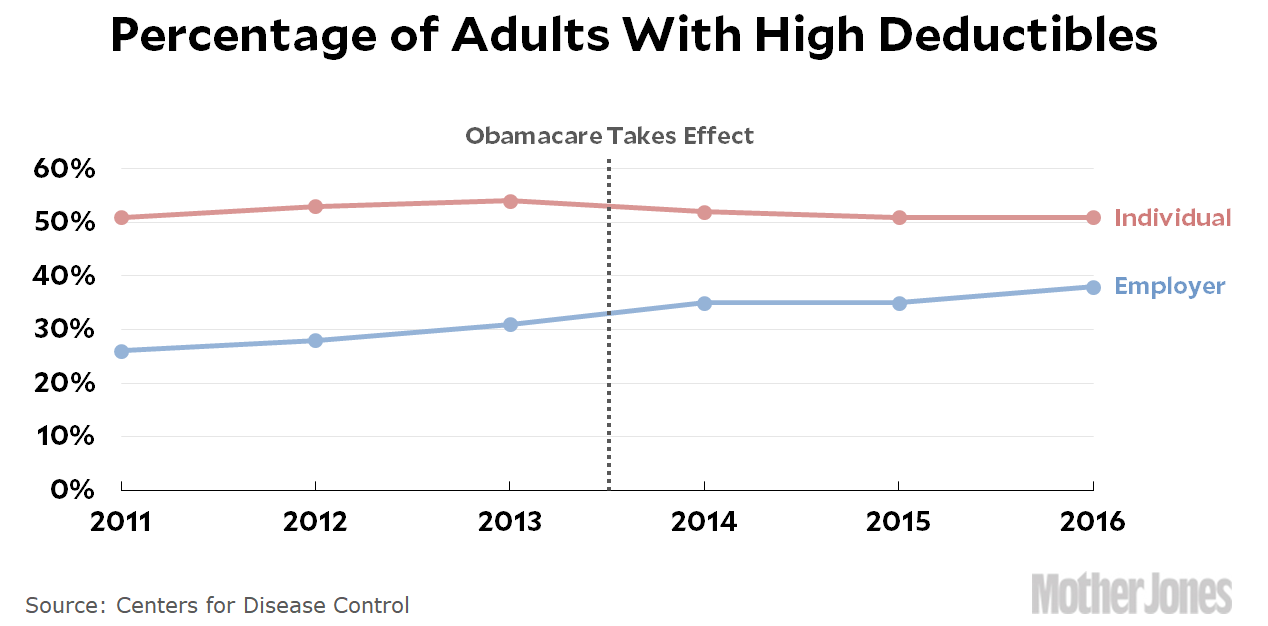Republicans have been griping for years about the “worthless” health insurance provided by Obamacare. Why worthless? Because the deductibles are so high.
This takes some serious chutzpah, since high-deductible insurance has been a favorite Republican meme for decades. Practically every Republican health care proposal is based on some combination of high-deductible plans and health savings accounts, and Trumpcare is no exception. Under Trumpcare, average deductibles would increase considerably and HSAs would double in value. The only reason you haven’t heard about this is because Republicans have kept pretty quiet about it. You see, conservatives love it, but voters don’t. They just want health insurance to pay the damn bills.
But shameless or not, it’s still true that many people on the Obamacare exchanges buy plans with deductibles of $3,000 or more. That’s a drag. Of course, before Obamacare lots of people with individual insurance bought plans with high deductibles too. So what we really want to know is whether this changed when Obamacare went into effect. Here are the latest numbers from the CDC:

Among those with individual insurance, high-deductible plans have stayed dead level since Obamacare took effect. It’s had zero effect on the number of people who choose to buy less expensive plans with higher deductibles.
On the other hand, employer plans have been getting steadily crummier the entire time, and once again this has nothing to do with Obamacare. Deductibles have gone up solely because large companies have chosen to pare down their health coverage even though corporate profits are at an all-time high.
This is just the latest in a long list of Obamacare disasters that have turned out not to be. It didn’t send the cost of health care skyrocketing. Obamacare didn’t destroy part-time jobs. It’s not in a death spiral. Premiums haven’t been higher than originally projected. And now we know that it’s had no effect on deductibles either.
Obamacare does have a few real problems. They are generally small and technical, and could be fixed very easily. But fixing Obamacare wouldn’t provide a big tax cut for the rich, so Republicans aren’t interested. That’s all you need to know about why they hate it so much.















